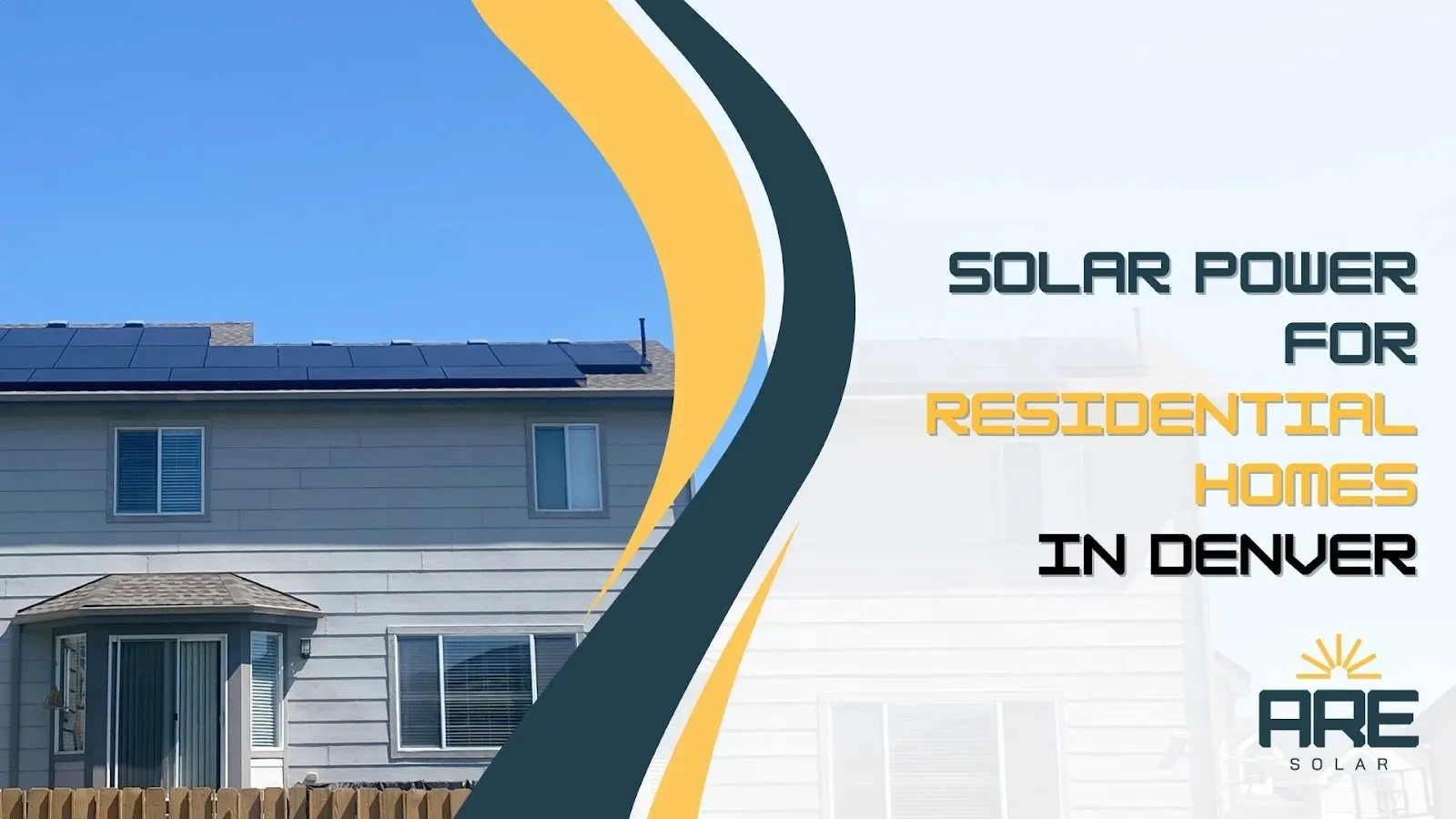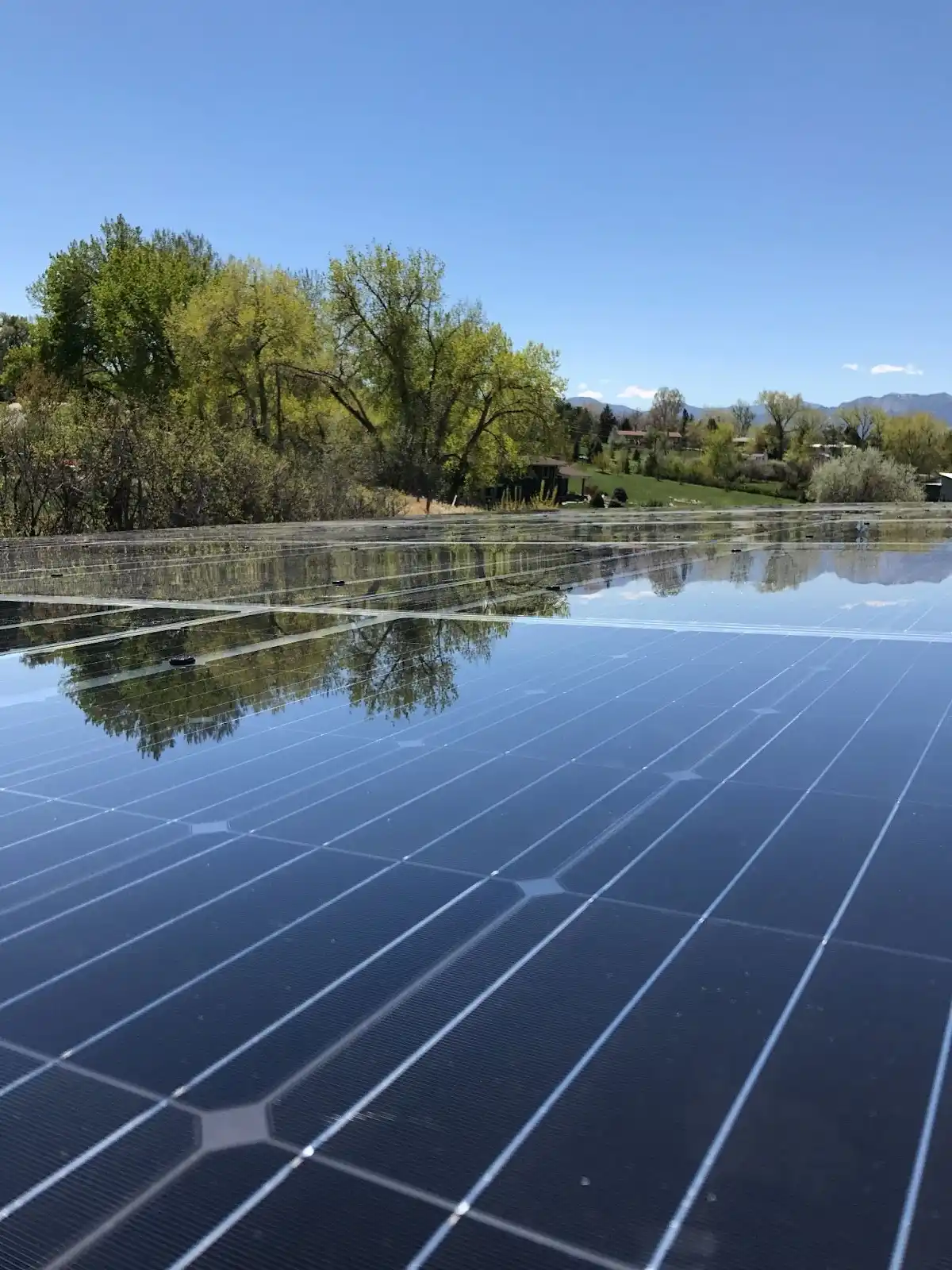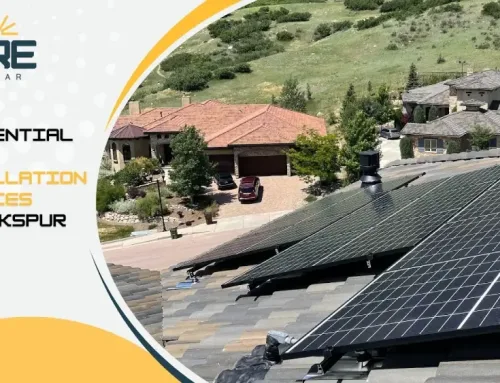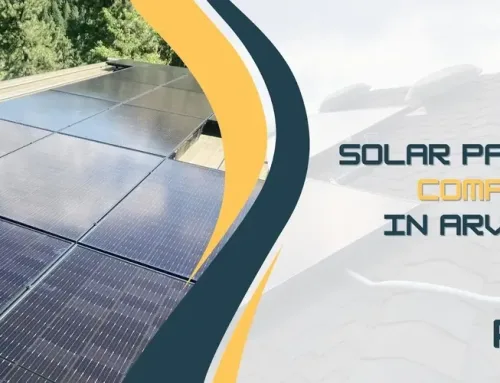Solar energy is one of the most stable and rewarding investments a homeowner can make but how long can you actually expect your panels to last? For many homeowners exploring residential solar systems in Denver, durability is more than just a nice-to-have—it’s a deciding factor in going solar in the first place. With so much conflicting information out there, it’s easy to get caught between exaggerated promises and worst-case scenarios.
But the truth is this: when installed properly and maintained well, modern solar panels are built to last. We’re talking decades of performance even in Denver’s unpredictable climate. From summer heat waves to spring hailstorms and winter snow accumulation, your panels are designed to withstand it all. But longevity doesn’t just depend on the product but also where you live, who installs it, how it’s maintained, and what steps you take to protect your investment.
If you’ve ever asked yourself how long your system will last, what impacts its lifespan, or whether now is the right time to invest in solar, this guide is for you. Especially with upcoming changes to the federal solar tax credit, the timing of your decision matters more than ever. Let’s break down exactly how many years you can count on your solar panels and what it takes to make sure they last.
How Long Do Residential Solar Panels Actually Last?
Understanding Average Lifespan
Most solar panels are expected to last between 25 and 30 years, but that doesn’t mean they stop working after that. Rather, their energy production slowly decreases over time due to a process known as degradation.
What Degradation Really Means
Degradation is a natural decline in panel efficiency over time. Modern panels degrade at about 0.5% to 0.8% per year, which means even after 25 years, your panels could still be operating at roughly 80% of their original efficiency. That’s a significant amount of usable energy, especially when you consider Denver’s abundant sunlight.
After 30 Years: Will My System Still Work?
Yes. Many systems function long past their “warranty period.” Homeowners with well-maintained systems have reported their panels working efficiently even into year 35 or 40. The key difference lies in slightly lower output, not failure.
Factors That Impact the Lifespan of Your Solar System
Not all solar systems are created equal. While product quality matters, so does the environment it’s in and how it’s cared for.
Panel Type and Build Quality
- Monocrystalline panels, the most commonly used for residential solar systems in Denver, tend to last the longest and perform better in low-light conditions.
- Polycrystalline panels are cheaper but degrade slightly faster over time.
- Thin-film panels are lighter but less durable, making them less ideal for homes in harsher climates.
Importance of Installation Quality
Choosing the right installer can make or break your system’s long-term performance. Proper flashing, wiring, and mounting techniques ensure your system can handle:
- High winds
- Intense snowfall
- Shifting rooftop materials
- Roof penetrations without leaks
Poor installation can reduce lifespan by up to 20%, either through water ingress or unnecessary exposure to physical stress.
Denver’s Unique Climate Considerations
Solar panels in Denver often face unique weather patterns:
- Snow loads can temporarily obscure panels, but panels are typically installed at angles that allow snow to slide off easily.
- Hail is a real concern, but most panels are tested to withstand hailstones up to 1 inch at 50 mph.
- High UV exposure and temperature fluctuations can cause thermal cycling, but high-quality panels are designed to accommodate this.
Monitoring and Maintenance
Unlike many other home upgrades, solar panels require minimal upkeep. But for optimal performance:
- Clean panels once or twice a year (more if you’re in a dusty or pollen-heavy area)
- Trim surrounding trees to avoid shade
- Schedule annual inspections to check connections and inverters
Residential Solar Systems in Denver: Why They’re Built to Last
Denver’s solar scene is booming—and for good reason. With more than 300 days of sunshine per year, this region allows homeowners to make the most out of every solar dollar spent.
Advantage of Dry Climate
Moisture is the enemy of longevity. That’s why Denver’s low humidity levels help reduce internal corrosion of panels and connectors.
Seasonal Extremes? No Problem.
While you may worry about spring hail or winter snow, solar panels are installed to meet local building codes and regional weather requirements. With the right racking systems and weatherproofing, panels stay secured and functional year-round.
How to Make Your Solar Panels Last Even Longer
Even though solar panels are naturally durable, a few extra steps can stretch your investment well beyond the standard lifespan.
Protecting Your Panels from Environmental Damage
- Avoid shade: Trees grow, so keep an eye on foliage to avoid performance loss.
- Bird deterrents: Nesting under panels can damage wiring. Ask your installer about mesh guards.
- Debris control: Leaves, dirt, and pollen can cause hotspots; keep your panels clean.
Plan for Inverter Replacements
Inverters typically last 10-15 years, which is shorter than panels themselves. Replacing the inverter on time ensures your system continues converting solar energy efficiently.
Leverage Warranties and Monitoring
Most Tier 1 manufacturers offer:
- Performance warranties (25+ years)
- Product warranties (10–25 years)
- Real-time monitoring software to track daily output and identify issues early
Act Now Before Solar Incentives Disappear
Your Window to Save Could Be Closing Fast
There’s never been a better time to install a solar system—and there may never be another window like this again! Right now, homeowners are eligible for a 30% federal tax credit (Section 25D) when they install a qualifying solar system. But that opportunity is quickly slipping away.
The House Ways and Means Committee has passed a bill that would eliminate the Residential Solar Tax Credit by December 31, 2025. That means you have less than 18 months to design, schedule, and install your system if you want to claim the full incentive. That’s not just thousands of dollars in savings! It’s your opportunity to reduce your energy bills and improve your home’s value with government-backed support.
If you’ve been searching “residential solar systems near me,” it’s time to stop looking and start acting. Each passing month brings new uncertainties about utility rates, legislative support, and equipment availability.
Trust ARE Solar for Lasting Energy and Lasting Value
ARE Solar is one of Colorado’s most experienced and respected solar providers, specializing in residential solar systems in Denver that are designed to last decades. We use Tier 1 components, handle every step in-house (including permitting and interconnection), and walk you through the tax incentive process so you don’t leave money on the table.
Let’s build a solar system that performs, protects your home, and saves you money before time runs out! Contact us today to start your consultation and lock in your solar savings before the tax credit disappears.



















